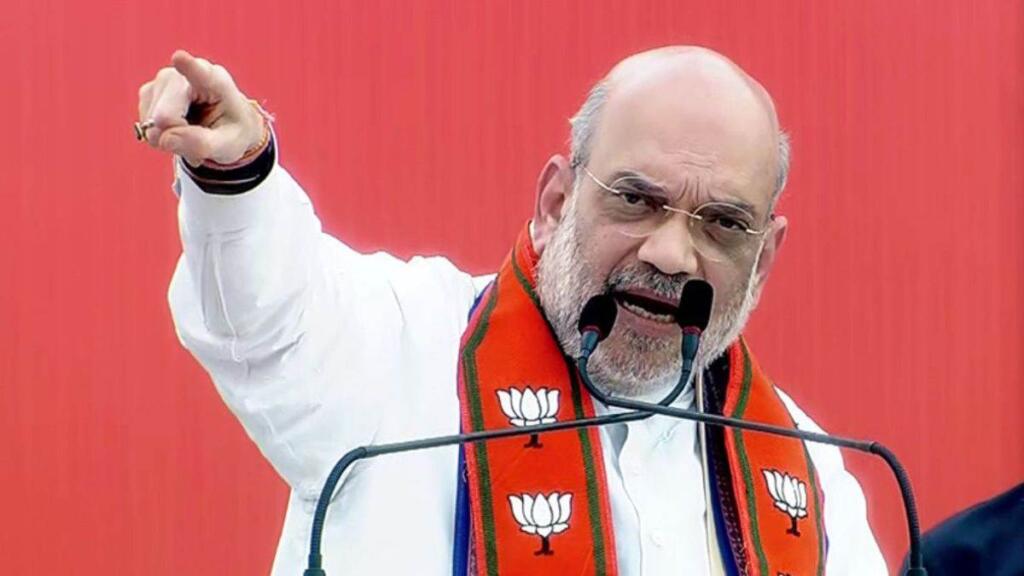In July 2017, when the central government implemented the Goods and Services Tax (GST) system across the country, a whirlwind of misinformation and rumors arose against this new tax regime. Reports were spread stating, “This item will have higher taxes,” and “That item will have higher taxes.” Social media platforms, already notorious for spreading fake news, exacerbated the situation. The government had to intervene multiple times to refute these false reports and stop them in their tracks.
This history is repeating itself now with the formal implementation of three criminal laws: the Bharatiya Nagarik Suraksha Sanhita (BNSS), the Bharatiya Nyaya Sanhita (BNS), and the Bharatiya Sakshya Adhiniyam (BSA), across the country. Opponents of the government have become active again, spreading fear campaigns on social media. Although the government has organized meetings to explain the key features of the new legal system, it is still taken aback as various groups present themselves as victims of the new system.
First Fake News
As soon as the new legal system, covering over 650 district courts and 16,000 police stations nationwide, was implemented, the first piece of fake news spread. It was reported everywhere that the first case under the new system was against a street vendor in New Delhi. The term “street vendor” was mainly used to suggest that the new system targets the poor and underprivileged. Home Minister Amit Shah had to clarify that the new laws had nothing to do with the street vendor’s case. However, by then, the damage was done.
Flood of False Stories
Then another campaign started, claiming the laws were implemented without sufficient time. This was another misleading issue. Despite the bill being passed after 9 hours and 29 minutes of discussion in the Lok Sabha and 6 hours in the Rajya Sabha, this falsehood was spread. A parliamentary committee discussed it and made suggestions, many of which were incorporated. The three bills, aimed at replacing the existing British-era criminal laws (Indian Penal Code, 1860; Code of Criminal Procedure, 1973; and Indian Evidence Act, 1872), were later sent to a 31-member parliamentary standing committee. After consulting experts and stakeholders, the panel adopted its report on these bills in November 2023, recommending over 50 changes. The revised bills were reintroduced in December 2023 and discussed in Parliament.
Opposition from the Medical Community
The medical community, which garners public sympathy as it directly affects everyone’s lives, was chosen for spreading false news. The BNSS brought medical negligence under the scope of ‘criminal negligence.’ In reality, this is a welcome step from the public’s perspective. When every profession faces criminal prosecution in proven negligence cases, exempting the medical profession is unfair and possibly illegal.
Spreading Misinformation
Indeed, the medical profession requires some exemptions, and Indian jurisprudence already provides adequate protections for doctors. The Supreme Court has also set guidelines for additional protections for doctors. The most significant falsehood in the ongoing wave of misinformation is that doctors will face five years of imprisonment if found guilty of criminal negligence. They claimed that the maximum punishment under the previous law was only two years. Mainstream newspapers published stories stating that doctors are very dissatisfied with this development. This is entirely false.
Equal System
The reality is that the number of years of punishment has not changed from the previous legal system, where doctors could also be prosecuted for criminal negligence. Section 106 of the BNSS, related to Section 304A of the IPC, which dealt with ‘causing death by negligence,’ imposes a five-year sentence for everyone but provides exemptions for registered medical practitioners. If proven guilty, they still face a two-year imprisonment, as before.
The new law is actually in favor of doctors who do not have any faults in their work. However, the ongoing protests suggest that doctors will become ‘risk-averse’ due to the new laws. This is completely absurd. Doctors who take risks to save a patient’s life have never faced prosecution. Only cases of extreme negligence (such as being found intoxicated or not trying to save a patient for illegal organ harvesting) are targeted. This is for the benefit of the common person, who should be the primary focus of any rational and empathetic legal system.
Government’s Responsibility
Some doctors, incited by dubious elements, are going in the wrong direction. They should not fall victim to suspicious political agendas. However, the ruling government also has the responsibility to extinguish the fire of false and misleading news. If necessary, it should use the full force of the new criminal laws against those spreading far-reaching rumors. Additionally, clear communication is essential in the current environment.
Conclusion
Thus, the government must take proactive steps against misinformation and rumors and provide the public with accurate information to ensure the proper implementation of the new criminal laws, thereby ensuring justice and security in society.
ALSO READ: Jharkhand High Court Orders to Deport illegal Bangladeshi infiltrators from the country
